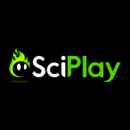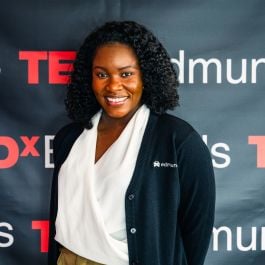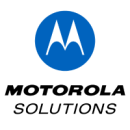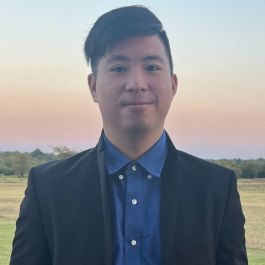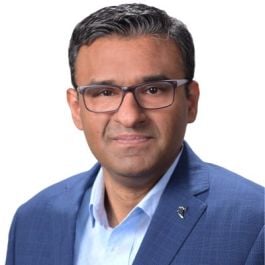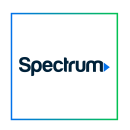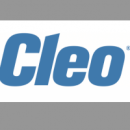What are the key ways employers will attract top talent in the coming years? According to the Future of Jobs Report from the World Economic Forum, they should focus on promoting employee mental health and learning and development opportunities.
Upskilling isn’t just good for employee retention and engagement; it also ensures employees are up to date on the latest trends and technologies, which can ultimately boost an employer’s bottom line.
Built In found nine tech companies that are supporting employees through upskilling and professional development.
9 Tech Companies That Prioritize Learning and Professional Development
SciPlay is a developer and publisher of digital casino games.
What new skill or role did you want to learn? Why was this important to you?
As the head of monetization, understanding the Scrum framework has been essential for fostering alignment and clear communication across the board. We’re a lean team in the gaming industry, and learning this framework has empowered me to collaborate more effectively, not by running sprints myself but by better engaging with our product and tech partners.
I wanted to speak the same language, ask the right questions and spot where friction was hiding. Being able to connect the dots between business needs and delivery processes makes me a better problem-solver and makes my team more effective.
How did your employer help support this time of learning and professional development?
My boss encouraged me to clear space in my calendar to fully engage with it, which is deeply appreciated.
SciPlay also created a culture where this type of professional growth is seen as essential, not optional. I was able to bring back insights and immediately apply them in how we plan, prioritize and interface with our cross-functional partners — making our workflows smoother and our collaborations more productive.
What was the outcome of this experience? How did it impact your future growth in your profession?
This experience transformed the way I lead and collaborate. By learning to connect Kanban-based planning with Scrum-based delivery, I’ve developed a more strategic approach to aligning cross-functional teams. It fosters autonomy while maintaining a clear focus on outcomes.
It’s made me a more credible voice in cross-functional rooms — able to bridge business goals with agile realities. I’ve become more confident in identifying blockers early, setting smarter priorities and coaching my team to work seamlessly with our tech partners.
Edmunds started with printed car guides in the ‘60’s; today, the automotive adtech company is a car-buying marketplace for new and used vehicles.
What new skill or role did you want to learn? Why was this important to you?
For years, I have been interested in improving my public speaking skills. With my manager's encouragement, I've seized every opportunity from leading meetings to reporting on monthly metrics to joining the Edmunds Speech Craft club. I was determined to exercise that particular muscle I had not truly used since undergrad.
So when Edmunds announced TEDxEdmunds — a TEDx-inspired speaking opportunity where employees were encouraged to deliver TED talks on how they motivate themselves, find inspiration to go the extra mile and how they plan to apply that to the year ahead — I immediately saw it as a call to action to stretch that skill (and myself) to the limit. Many if not most of the people I admire both professionally and personally are excellent orators. The ability to effectively tell a story, deliver an update or inspire a room of people may be considered a “soft skill” but as with many soft skills, it highlights something extraordinary about your capabilities outside of whether you can simply perform a task or not.
How did your employer help support this time of learning and professional development?
The amount of time dedicated to the speakers and our experience was instrumental in my own ability to see it through to the end. The Edmunds employee experience team, specifically, completely nurtured and developed the entire TEDxEdmunds journey from beginning to end. An immense amount of support and care was provided to the cohort of speakers at every turn — from biweekly TEDx course sessions to weekly open hours for practicing speakers to share ideas and roadblocks and receive thoughtful and tangible feedback or often just much-needed and appreciated encouragement. We were each assigned accountability partners, fellow speakers we could share our in-progress talks with and bounce ideas off of each other. These safe yet highly collaborative spaces pushed many of us out of our comfort zones in the best and most unexpected ways.
Companywide, there was a sense of excitement and anticipation as the four month long process unfolded. Ultimately, Edmunds provided the speakers with a fully dedicated TEDxEdmunds event day, curated and marketed to the entire company, quite literally providing the stage to shine a spotlight on all of our hard work.
What was the outcome of this experience? How did it impact your future growth in your profession?
Being selected to deliver my own TED talk at TEDxEdmunds was a dream I didn’t even know I had. Months later, I am still processing and comprehending that once-in-a-lifetime experience. Edmunds has consistently prioritized professional development throughout my six years here, beginning as a contractor. It is programs like Edmunds’ Learning Days, leadership development sessions, FUEL and countless other examples of Edmunds’ commitment to pouring back into employees like me that makes this company not just an exceptional place to work but to grow.
Oftentimes, professionals avoid the vulnerability and discomfort associated with public speaking, but I have experienced nothing but rewards right from the beginning. Not only am I a more confident and conscientious speaker, but participating in this program has also opened the door for individuals to approach me with their ideas to strengthen the communication and collaboration among our partnering teams. Additionally, the connections I have made with my fellow TEDxEdmunds speakers will only strengthen our professional journeys. I will always look to my TEDxEdmunds experience as a reminder that anything is possible.
Adswerve is an award-winning data, media and tech consultancy and a Google and Adobe partner.
What new skill or role did you want to learn? Why was this important to you?
As our technical team expanded, I recognized a critical need to evolve my own skill set beyond purely technical expertise. My goal was to mature into a more effective technical leader. This meant delving into the nuanced dynamics of team motivation, strategic communication and fostering productive collaboration. I believed that strengthening these human-centric leadership skills was essential not only to manage growth but to actively guide our team toward healthy growth and success.
How did your employer help support this time of learning and professional development?
Adswerve demonstrated a significant commitment to my development through a comprehensive, multilayered approach. The foundation was a nine month leadership and coaching program for a small cohort across the organization. This was augmented by personalized guidance from an assigned executive mentor. To deepen my expertise, the company also sponsored my participation in two specialized programs around data leadership and tech leadership.
What was the outcome of this experience? How did it impact your future growth in your profession?
The outcome was a shift in my leadership approach, moving from a primarily technical viewpoint to a more holistic one. I gained a robust framework for navigating the complex dynamics of leading technical teams, including facilitating more effective decision-making, resolving workplace challenges and communicating strategic vision with greater clarity. This experience has directly enhanced my ability to increase team effectiveness and has shaped my professional trajectory, preparing me to lead larger, more complex data initiatives and be a more effective team leader.
IMC is a proprietary trading firm powered by research and technology.
What new skill or role did you want to learn? Why was this important to you?
I was eager to grow into a more authentic and inspiring leader — someone who could align others around a shared vision and lead with both clarity and empathy. My 360 feedback surfaced a few key growth areas: being more vulnerable with my team, inviting feedback on how my actions impacted them and clearly articulating my leadership style. I also saw the need to speak with genuine conviction about the goals we were pursuing and the purpose behind our work. As I took on more responsibility, these capabilities became essential — not just to lead execution but to create belief, momentum and shared ownership. This shift directly contributed to stronger team performance and long-term results for the desk.
How did your employer help support this time of learning and professional development?
LEAP gave me both the structure and the support to develop in ways that felt deeply personal and practical. This program (developed by IMC) helped me connect the dots between mindset, behavior and impact — encouraging me to bring my full self to the table earlier in the process, share my thinking openly and not shy away from imperfect ideas. It also gave me space to practice the kind of leadership that celebrates and uplifts others. I learned how to use storytelling, praise and encouragement to build confidence and clarity. More broadly, IMC’s culture of feedback and emphasis on ownership was instrumental to my growth. Throughout my career, I have felt consistently supported by mentors, peers and team members who wanted me to succeed and were willing to challenge me to get there.
What was the outcome of this experience? How did it impact your future growth in your profession?
It’s had a profound impact on how I lead, how my team performs and ultimately, where my career has gone. I now make it a point to lead with greater transparency, openness and care — to connect our day-to-day work to a larger purpose and to recognize the people driving that progress. That shift built deeper trust and alignment within the team, which played a critical role in the success of a major strategic shift we undertook. A year and a half after setting a new vision for our trading strategy and seeing it through, I was promoted — an important milestone but also just one part of the larger impact. With it came increased resourcing for our team, enabling us to scale our impact and build stronger capabilities. I’ve also taken on responsibility for a larger team and have been brought into key strategic decision-making forums. It’s been a moment of personal and professional growth, and it’s expanded what I now see possible for myself and the team I lead.
Motorola Solutions creates communication solutions and technology designed to create safer communities and cities.
What new skill or role did you want to learn? Why was this important to you?
I was incredibly excited to join Motorola Solutions in October 2023 as a sales engineer. In this role, I have the opportunity to work with customers on the front lines to help solve complex technology challenges in real time and contribute to creating a safer world, something I am passionate about every day.
Reflecting on my time as a new employee, it was important to me to become an expert in our safety and security ecosystem of technologies as quickly as possible, positioning myself as a key technical resource for my team and the customers I support. Additionally, I’ve always had a desire to take on more leadership in my career, so finding ways to contribute to organizational success was also important to me.
How did your employer help support this time of learning and professional development?
In my first week, I hit the ground running with new hire training, learning about the real-world applications of our technologies. I was also provided specialized training in the core areas I supported, like our license plate recognition solutions. We had dedicated work hours to experiment in a sandbox environment, allowing me to practically apply my knowledge and skills with the technology. For example, I was able to personally test our innovative LPR technology to open a gate when a known vehicle entered my driveway. Upon completing onboarding, we demonstrated a specific product to our peers, fostering constructive feedback while helping solidify everything we learned. This experience positioned me very well to subsequently present to our customers.
Inspired by the support I received during this process, I wanted to train other new hires in sales engineering, taking on a leadership role among my peers. My team provided resources to create a new, dedicated sales engineering mentorship program, where I piloted various training sessions and collaborated with management and team leads who provided me feedback on how to refine this initiative through performance reviews.
What was the outcome of this experience? How did it impact your future growth in your profession?
These experiences have significantly impacted my future growth, establishing me as both a technical and leadership resource within the organization. I’ve had the opportunity for higher-level roles and to expand my experience as a mentor.
For my team, I’m a subject matter expert in LPR technology and the Motorola Solutions ecosystem, enabling me to lead projects, troubleshoot complex problems and train my colleagues. Within the first six months, I had already interacted with many customers (too many to count!), finding it incredibly fulfilling to help solve their challenges.
Upon introducing the dedicated sales engineering mentorship program, we further reduced ramp-up time and improved retention by supporting engineers after the onboarding program through a peer-based support system, serving as an ongoing, structured and supportive learning environment. Personally, I feel more confident in my skills, driving innovation and team development, helping shape my career path in leading new and bigger technology initiatives throughout the business.
Arity was founded by The Allstate Corporation in 2016, and today is a mobility data and analytics company focused on improving transportation.
What new skill or role did you want to learn? Why was this important to you?
One of the most impactful learning experiences I had this past year was working on the migration from one cloud service to another. This initiative, part of a broader cost-saving effort, pushed me to deepen my skills in cloud and network infrastructure while working under tight deadlines. What made this especially important to me was the opportunity to take on a more strategic role: collaborating closely with the site reliability engineering team, solving complex challenges and helping coordinate the migration process. It was a hands-on experience that blended technical growth with leadership development. Seeing the tangible impact in cost efficiency and improved system performance made the effort incredibly rewarding.
How did your employer help support this time of learning and professional development?
My manager was incredibly supportive from the moment I picked up the task to the final migration of the last application. He not only created a supportive environment where I felt encouraged to take on a challenging task outside my usual scope but also provided consistent guidance, helped me prioritize work and connected me with key experts from the site reliability engineering team. Their technical leadership and willingness to troubleshoot alongside us were essential to my learning throughout the migration process. I was also supported by a highly collaborative team culture. I worked closely with my fellow teammates to tackle the complex application migrations together. We shared knowledge freely, learned from one another and leaned on each other during problem-solving. This kind of peer support and cross-functional collaboration was critical to my development, both technically and in stepping into a more active leadership role.
What was the outcome of this experience? How did it impact your future growth in your profession?
The cloud migration project had a significant impact on my professional growth. It helped me build a solid foundation in cloud and network infrastructure, sharpen my ability to troubleshoot complex deployment issues and gain hands-on experience with large-scale migrations. As a result, I became a go-to resource on the team and was recognized as a subject matter expert in this space. This work didn’t go unnoticed. I was recognized for my contributions and leadership throughout the project, which led to a promotion and advancement in my career path. Beyond technical skills, the experience also helped me grow in leadership, problem-solving and cross-functional collaboration — skills that I know will continue to shape my career. It also sparked a strong interest in cloud engineering and DevOps. The challenges I faced revealed how much depth and opportunity there is in these fields, and I’m excited to continue developing in these areas. I look forward to contributing to more projects that drive innovation, efficiency and long-term impact.
Spectrum is a connectivity company that creates, develops, and operates mobile services, internet service, live TV app and WiFi for nearly 100 million users.
What new skill or role did you want to learn? Why was this important to you?
In the world of engineering — and especially at a connectivity company like Spectrum — technology is constantly evolving. In my role, I manage the equipment that keeps our network running, so having a strong foundation in data analysis and AI is important. I’m always looking for ways to stay ahead of the curve, so when I saw that I could use Spectrum’s education benefit to earn a Python certificate from a reputable organization like e-Cornell at no cost to me, it was an easy decision to enroll. The program didn’t just give me new coding skills, it helped me understand how I could apply my programming knowledge to my daily work. It’s been a game changer — for my own growth and for how I can support my team in smarter, more efficient ways.
How did your employer help support this time of learning and professional development?
Spectrum’s education benefit gave me the opportunity to grow my skills without having to worry about cost. I was able to choose the course that most interested me from a catalog of nearly 300 online programs. It’s no secret that juggling full-time work and heading back to school can be challenging, but being able to take these classes online helped me find the right balance I needed. Personally, enrolling gave me the opportunity to think about my long-term goals and how I want to keep progressing in my career. What made a big difference was knowing that my leaders were behind me and my team was supportive. I had the support and encouragement needed to keep me motivated.
What was the outcome of this experience? How did it impact your future growth in your profession?
Earning my certificate from e-Cornell thanks to Spectrum’s education benefit was a major personal milestone and a proud moment in my career. Beyond the certificate itself, the skills I learned along the way have already made a real impact on how I can contribute to my team day to day, helping us to maintain the reliable service that we’re known for. I’m already thinking about what might be next for me, perhaps pursuing a course in technical leadership so that I can continue to build upon the skills I already have and keep growing. This just goes to show how Spectrum’s investment in employees goes beyond the basics — the company is committed to helping its employees build long and successful careers.
MongoDB’s multi-cloud database empowers innovators to create, transform and disrupt industries by unleashing the power of software and data.
What new skill or role did you want to learn? Why was this important to you?
Working with AI and building my technical expertise was critical for my next role. I had spent over two and a half years working as a consulting engineer at MongoDB when the opportunity to join our new application modernization team arose. As I transitioned into an application delivery consultant role on the team, I set out to grow my technical leadership skills by combining hands-on engineering with innovation in generative AI. Developing expertise in applying AI to real-world software delivery challenges was important not only to stay ahead of industry trends but to deliver differentiated, future-proof solutions for enterprise-scale modernization. I’ve continued to broaden my experience at the intersection of architecture, delivery and client strategy.
How did your employer help support this time of learning and professional development?
MongoDB provided an environment where I could immediately take ownership of a high-visibility, cross-functional project as the technical lead, partnering with principal engineers and client executives on complex, meaningful challenges. I had leadership support to experiment with AI as we prototyped solutions for real-world client needs. Through collaboration with our engineering and product teams, I gained exposure to cutting-edge tools like LangChain and OpenAI APIs to accelerate application migration. Beyond that, I had access to technical enablement, mentorship and the autonomy to drive both strategy and delivery. This combination of trust, innovation and cross-team collaboration helped me grow rapidly as a technical leader in the AI space.
What was the outcome of this experience? How did it impact your future growth in your profession?
This experience accelerated my trajectory as a strategic technical leader at MongoDB. I now lead a team modernizing critical enterprise applications, guiding architecture, integrating AI and delivering outcomes that strengthen client trust and long-term investment in MongoDB. I’ve grown into a role where I not only engineer solutions but drive innovation, manage ambiguity and influence outcomes at scale. This foundation has opened doors to future leadership roles where AI fluency, technical strategy and stakeholder partnership are essential.
Cleo is an ecosystem integration software company focused on business outcomes, ensuring each customer’s potential is realized by delivering solutions that make it easy to discover and create value through B2B enterprise data.
What new skill or role did you want to learn? Why was this important to you?
My goal during my transition into the account executive role was to strengthen my consultative selling skills and deepen my business acumen. Working with a variety of companies across the supply chain, it’s critical to understand how each business operates and generates revenue.
This understanding has been essential in helping me effectively navigate the sales cycle and identify where Cleo can provide the most value. Given the wide range of challenges we address with the Cleo Integration Cloud, having this business insight enables me to better align our solutions with each customer’s unique needs.
How did your employer help support this time of learning and professional development?
Cleo has supported this initiative in several meaningful ways. It begins with our weekly sales excellence calls, which provide continuous updates on the supply chain and highlight effective sales tactics backed by proven results.
In addition, Cleo has a dedicated team of supply chain experts whom I feel confident reaching out to at any time to work through specific questions or scenarios.
The marketing tools provided are also essential. I rely on tools like Gong daily to refine my talk tracks and revisit key moments from past conversations.
Finally, leadership. Cleo’s leadership team has played a significant role over the years by actively seeking feedback, offering one-on-one coaching, listening to employees and engaging across all levels of the organization to help nurture our growth and success.
What was the outcome of this experience? How did it impact your future growth in your profession?
The outcome of the consistent support and resources I’ve received at Cleo has been incredibly impactful. While I’ve been fortunate to achieve several promotions and success in each role I've held at Cleo (I joined the company as a sales development representative, was promoted to senior SDR, then became a customer success associate and now serve as an account executive), the most valuable takeaway has been the lasting skills and insights I’ve gained — tools that will serve me well throughout my career. Cleo truly values growth, and it’s clear that everyone here is invested in helping one another thrive.




